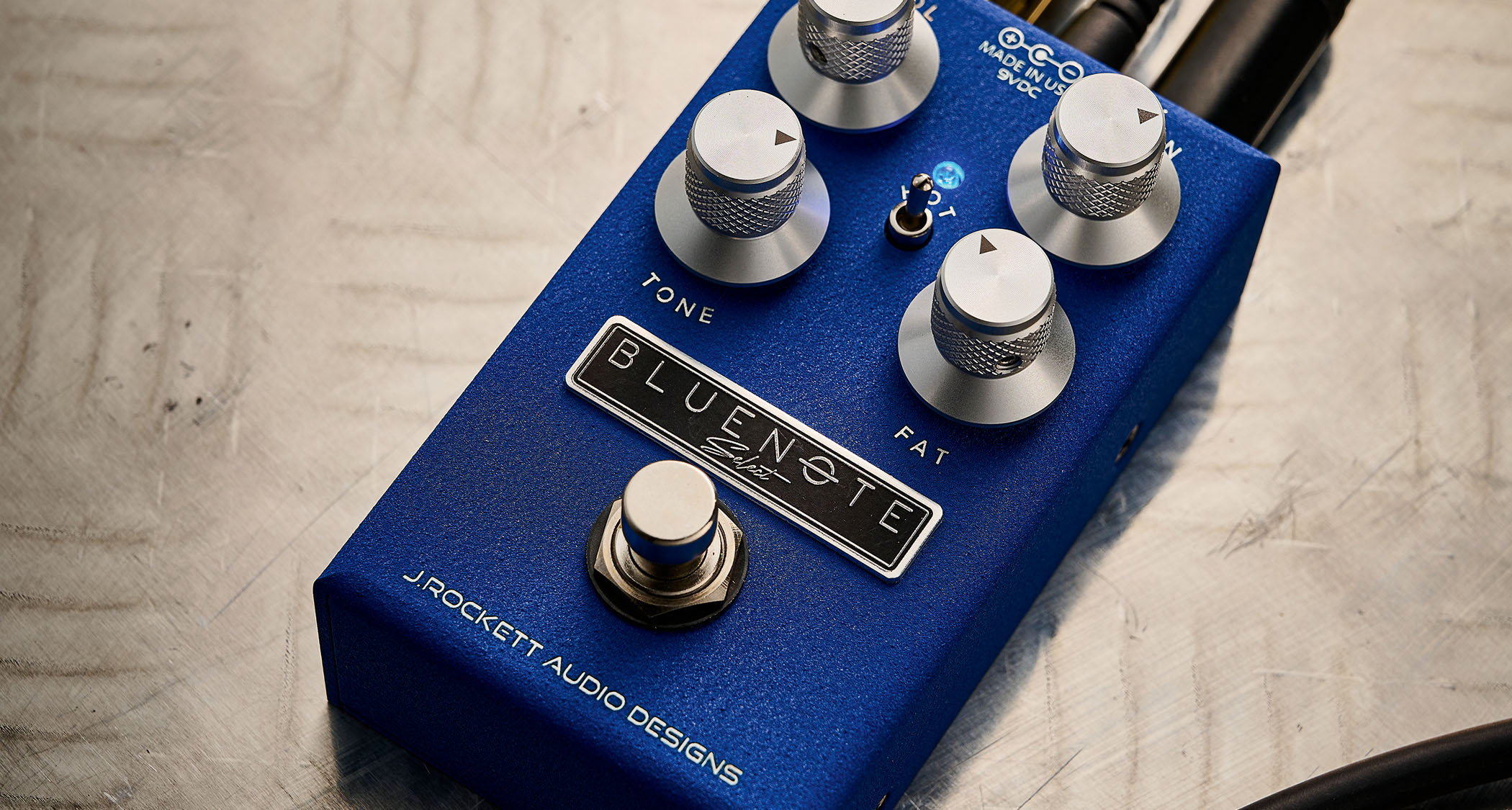“I don’t like outward complexity – I enjoy being stealthy about it, and Steely Dan are beacons for that”: Meet Sam Vallen, the shredder swiping yacht rock chords and turning them into one of 2024’s best prog-metal albums with Caligula’s Horse
The Australian virtuoso explains how writing a dissertation on Steely Dan’s harmonic vocabulary helped him build a record full of ambiguity and tension in Charcoal Grace

Reflecting on the tumult of the world on sixth album, Charcoal Grace, progressive metal storytellers Caligula’s Horse have created a much darker affair than their previous works. It’s a record rife with long, protracted songs, mood shifts and fluid lead playing.
Yet for guitarist Sam Vallen – who founded the Brisbane quartet in 2011 alongside vocalist and co-collaborator Jim Grey – much of his key songwriting work happens away from his beloved Ernie Ball Music Man guitars.
“From the first section or two, we’ll start brainstorming the thematic direction of the song to inform the next parts,” says Vallen. “I’ll sit back and, without an instrument in my hand, I’ll say, ‘What mood should this piece go to next?’
“I find it hard to sit down and generate a riff from scratch. That doesn't come as naturally to me as big-picture melody. I much prefer if I have some kind of structure to build riffs within.”
He argues that metal musicians often look at pairing riffs together for the building blocks of songs. In Caligula’s Horse, their approach is much more holistic. “There has to be this very deliberate approach to how we take one section and create another to be a partner to it,” he says.
“It has to have a reason to change tonality. That’s where music theory is useful; it lets me run through a bunch of ideas to see if something gets me close to where I wanna go.”
Previously he’s revelled in the challenge of condensing an impactful solo into just eight or 16 bars. On Charcoal Grace, he’s bucked that trend. “When I hit a roadblock, I like to put my guitar down and listen to what I've got,” he explains.
Get The Pick Newsletter
All the latest guitar news, interviews, lessons, reviews, deals and more, direct to your inbox!
“I'll walk around humming it and find some melodic ideas that connect it together. I think guitarists can really benefit from letting your voice lead you to expanding your melodic vocabulary without an instrument mediating the two.
“I really strive to make it feel like it's this one massive, undulating idea that all links in some way to this big-picture narrative. A lot of my solos reference motivic elements, like vocal melodies. The moment you've got something to lean on, it’s easier to get out of the traps of how you might otherwise construct a solo.”
Gorging on new tricks is something of an obsession for Vallen. In 2014, he wrote his honors dissertation on the harmonic vocabulary of Steely Dan.
“They have this incredible knack for taking stuff that is, at its face, is very sophisticated and complex, and place it in such a way that it really doesn't seem it,” he says. “I don't particularly like outward complexity; I enjoy being stealthy about it and I think Steely Dan are beacons for that.”
A key trick – swiped from the sleeves of Becker and Fagan and littered across the Aussies’ back catalogue – is the use of mu chords. Describing them as a “first inversion add2 chord” where the lowest note played is the second, third, or fifth rather than the root, they add a fresh mystique to major chords.
Says Vallen: “Playing big chords, especially in a kind of pianistic voicing where the intervals of quite close to one another, becomes a mess of harmonics. It doesn’t matter how nice the guitar or your tone is – it’s very hard to translate onto guitar.
“Mu chords keep those intervals separated. If the bass is playing the tonic, there’s no need for me to play that note, too. With mu voicings you’ve suddenly got the beginnings of a super chord that can translate beautifully, even through distortion.”

For Charcoal Grace – a response to observations of a pandemic-stricken world – perfect cadences would have felt disingenuous. “We needed to create a work of art that we could move through all of that negative stuff with,” Vallen says.
“It's a dark, thoughtful and exploratory album, so the dissonance of mu voicings helps dilute the majorness of the chord. Sometimes you want that resolve, but you still want a bit of tension in there as well. Resolves don’t have to feel conclusionary.”
Steely Dan opened my eyes to the idea of using slash chords to create ambiguity with something that otherwise might be a little obvious
Another ‘Stoley Dan’ is the use of slash chords to take the listener down unexpected avenues. “One trick – which was pretty common in Motown, too – is having a IV-I cadence, but giving the four the tonic of the five,” Vallen explains.
“So if you're in the key of C major, you've got an F to C, but it's actually an F/G to C, and it's a really interesting way of creating this ambiguity between the two most obvious cadences.
“Or, instead of that F/G resolving to C, you resolve to the relative minor. They use that in Deacon Blues and it opened my eyes to the idea of using slash chords to create ambiguity with something that otherwise might be a little obvious.”
The album was tracked with what Vallen calls a “cross section” of Music Man guitars. His trusty JP 7 – which he’s owned since 2014 and features a basswood body and rosewood fretboard – is customised with Bare Knuckle Silos. They’ve proven to be a game-changer.
“I’ve been working with Bare Knuckle for quite some time and their pickups are truly second to none,” he enthuses. “They’re a really nice, versatile, sweet and clean-sounding, scooped pickup.
“Then I’ve got a JP15 7, which is all maple and alder and is much harder, brighter and punchier as a result. I’ve got a set of Bare Knuckle Nailbombs in that. So between the two of them, and my Music Man Cutlass, which is my go-to for single coil Strat tones, I’ve got a wide artistic palette to draw on.”
His tone game, meanwhile, has ventured down the digital wormhole. “Up until Charcoal Grace, I've always had a pretty measured approach to tones where I borrow or hire whatever I can and shoot everything out until the perfect tone shows itself,” he muses. “But the entirety of this album exists, to some degree, within Neural DSP’s gear. I’ve used my Quad Cortex a lot and I've dug into plugins.”
I like that you can never stop learning and, in a very selfish sense, see what I can smuggle into Caligula’s Horse
When it comes to building tones, he finds third-party IRs key to his architecture: “If I can’t load up an amp with everything at 12 o’clock with a third-party cab that I’m really familiar with, and get a good sound out of it, it's probably not for me.
“The cab gives me a wonderful, objective baseline that my ears are already accustomed to. I can be really honest about how something feels and how it responds to my playing. That’s usually the beginning of a rabbit-hole of exploration that goes to disgusting depths immediately after.”
From analyzing Steely Dan to methodical, emotionally led songwriting, Vallen thoroughly enjoys getting nerdy for his own Machiavellian ends.
“I love digging into the minutiae of everything,” he says, a wry smile blooming. “I like that you can never stop learning and, in a very selfish sense, see what I can smuggle into Caligula’s Horse.”
- Charcoal Grace is released on January 26 via InsideOut Music.
A freelance writer with a penchant for music that gets weird, Phil is a regular contributor to Prog, Guitar World, and Total Guitar magazines and is especially keen on shining a light on unknown artists. Outside of the journalism realm, you can find him writing angular riffs in progressive metal band, Prognosis, in which he slings an 8-string Strandberg Boden Original, churning that low string through a variety of tunings. He's also a published author and is currently penning his debut novel which chucks fantasy, mythology and humanity into a great big melting pot.













